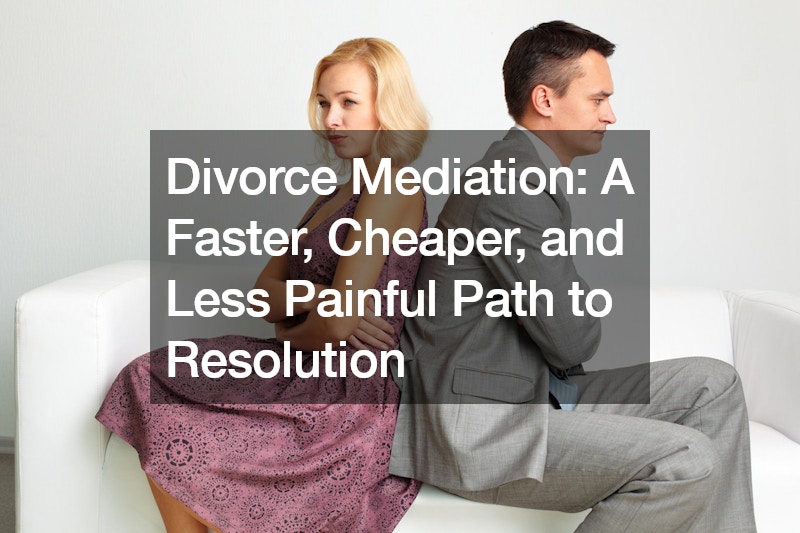Divorce Mediation A Faster, Cheaper, and Less Painful Path to Resolution

Divorce is a complex and emotional process, often filled with conflict and uncertainty. Traditionally, couples navigate divorce through the adversarial court system, which can be lengthy, expensive, and emotionally draining. Fortunately, there’s a more efficient and amicable alternative: divorce mediation.
Understanding Divorce Mediation
Divorce mediation is a collaborative process where a neutral third party, the mediator, facilitates communication and negotiation between spouses to reach a mutually agreeable settlement. The mediator doesn’t impose decisions; they guide discussions, ensure both parties are heard, and help bridge communication gaps.
Benefits of Choosing Divorce Mediation
Compared to traditional litigation, divorce mediation offers numerous advantages:
Faster Resolution: Mediation typically takes weeks or months, while court battles can take years. This allows you to move forward with your life sooner. Reduced Cost: Mediation generally costs a few thousand dollars, significantly less than the tens or even hundreds of thousands of dollars a litigated divorce can incur. Less Emotional Strain: Mediation fosters a more respectful environment, minimizing the emotional toll often associated with courtroom battles. Focusing on solutions rather than blame reduces conflict and promotes closure. Greater Control: In mediation, you control the outcome. You work with your spouse to create a customized settlement that reflects your unique needs and priorities. In court, a judge dictates the final decision, leaving less room for control. Improved Communication: Mediation empowers couples to develop better communication skills, which can benefit co-parenting and navigating future interactions, especially if children are involved. Who is Divorce Mediation Right For?
While unsuitable for every situation, divorce mediation is a viable option for most couples considering divorce. Here are some indicators that mediation could be a good fit for you:
You and your spouse are willing to communicate and work towards a solution. You are open to compromise but want to avoid the adversarial nature of litigation. You prioritize minimizing the emotional and financial strain on yourselves and your children (if any). What to Expect During Divorce Mediation
The specific mediation process may vary depending on the mediator and the complexities of your case. However, here’s a general outline:
Initial Consultation: You and your spouse will meet with the mediator to discuss the process, fees, and expectations. Information Gathering: The mediator will gather financial information, parenting plans (if children are involved), and other relevant details. Joint Sessions: Mediation sessions typically involve spouses and the mediator, focusing on communication, identifying key issues, and exploring potential solutions. Individual Sessions: The mediator may hold separate sessions with each spouse to address individual concerns or confidential matters. Reaching an Agreement: The mediator will help you draft a comprehensive settlement agreement outlining asset division, child custody arrangements (if applicable), spousal support (if applicable), and other relevant details. Once you and your spouse agree on the terms, the agreement will be reviewed by your respective attorneys and finalized. Seeking Professional Guidance
While divorce mediation is a collaborative process, consulting with separate legal counsel is crucial. Your attorney will ensure your rights are protected, review the settlement agreement, and advise you throughout the process.
Making an Informed Decision
aDivorce is a life-altering event, and choosing the right path forward is essential. Divorce mediation offers many couples a faster, cheaper, and less painful path to resolution. If you’re considering divorce, explore the benefits of mediation and discuss the option with your attorney to determine if it’s the right choice for you.
Remember, a successful divorce prioritizes a fair settlement, minimizes emotional distress, and allows you to move forward. Divorce mediation can be a powerful tool in achieving a more amicable and efficient resolution.
.




